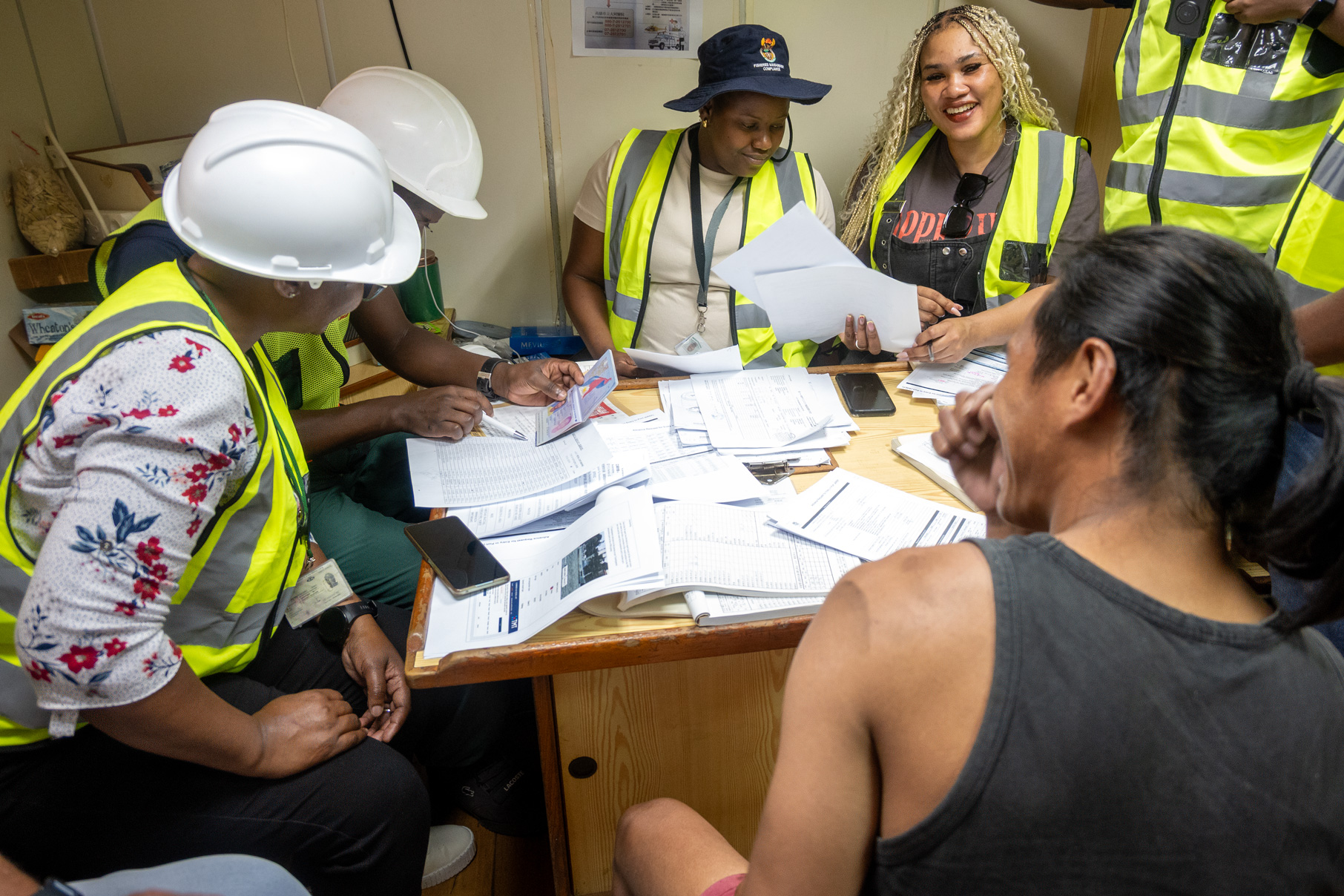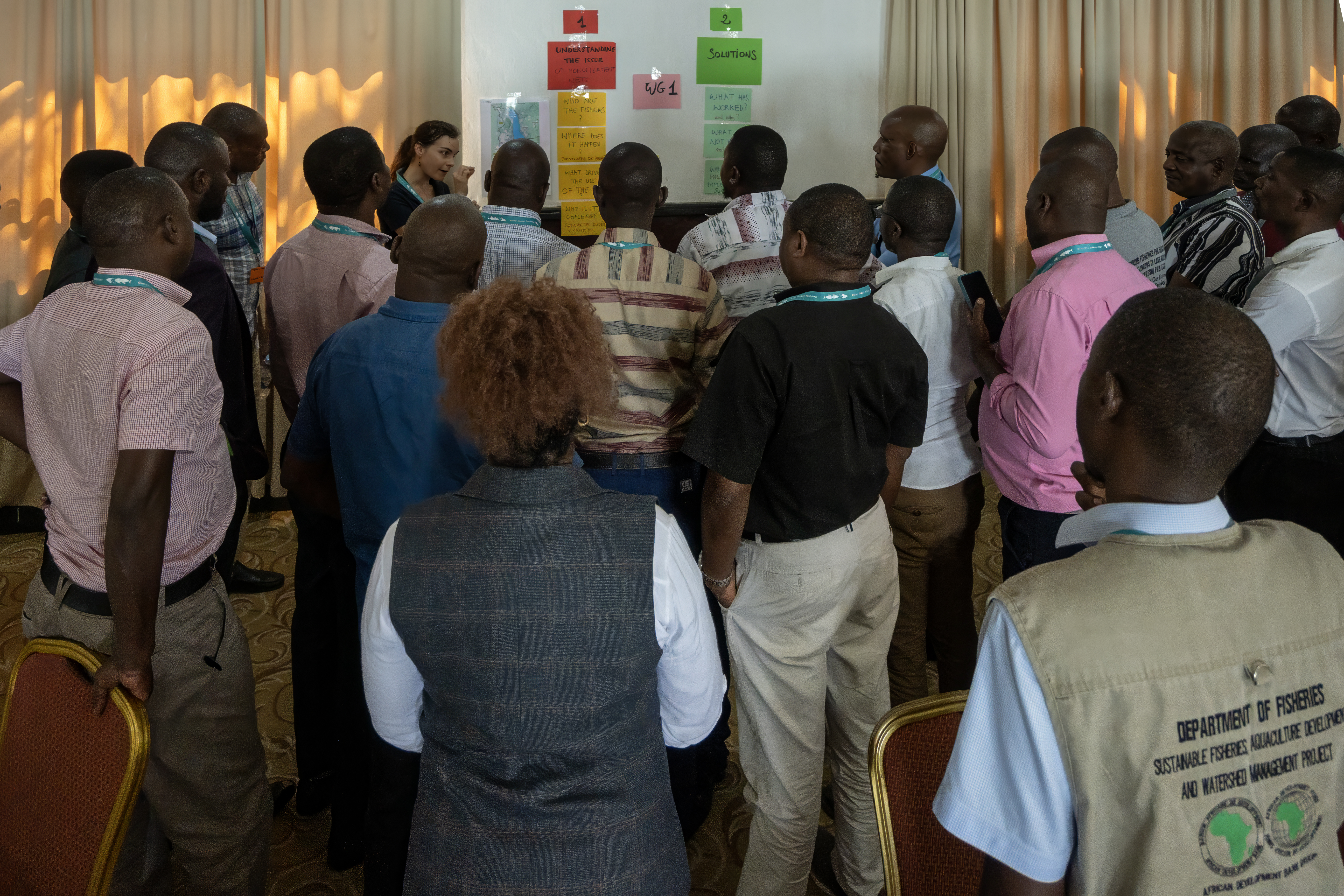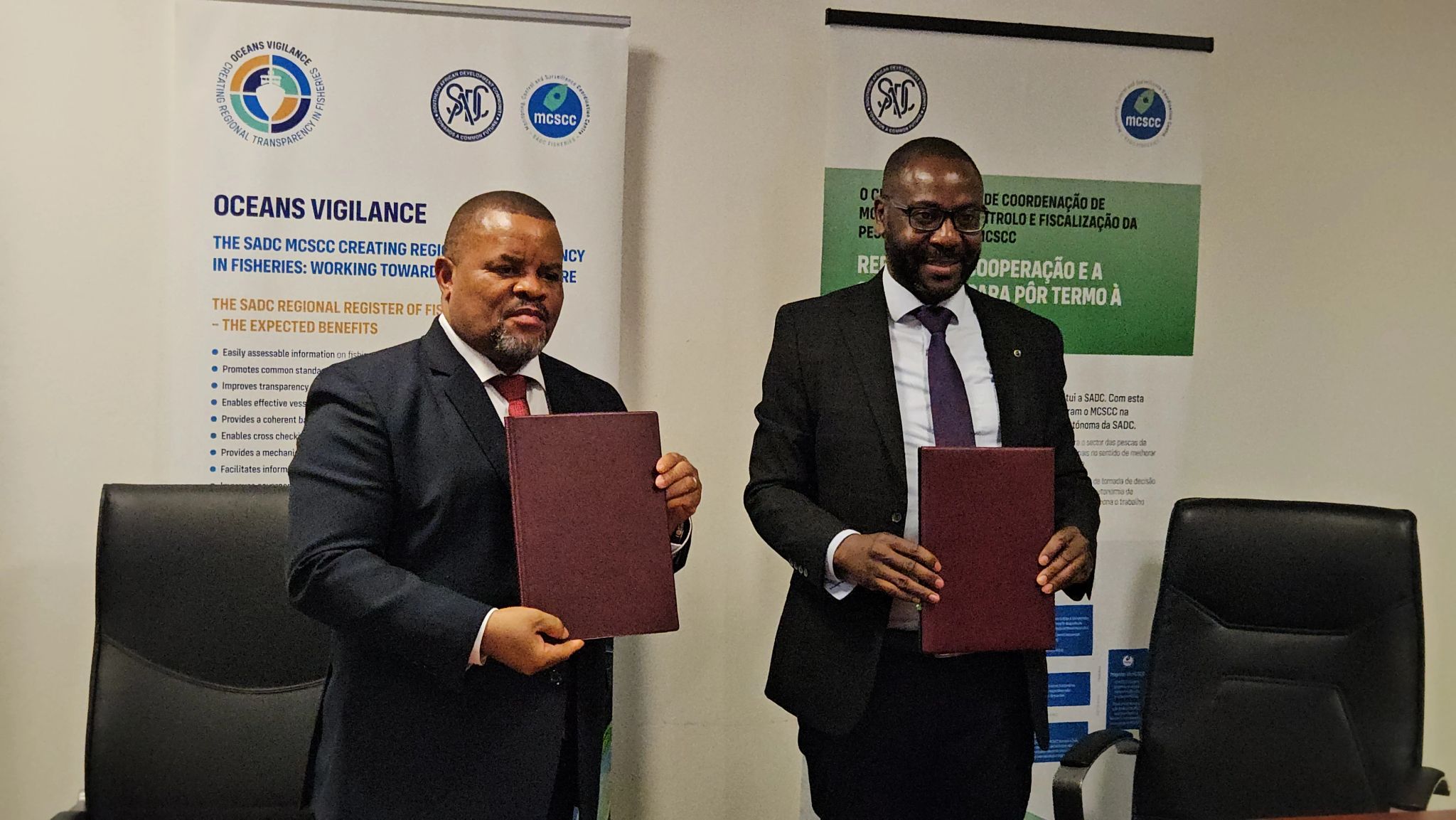Malawi embraces regional cooperation to support sustainable fisheries and aquaculture development in SADC
The Minister of Forestry and Natural Resources of the Republic of Malawi Honourable Nancy Tembo, MP, hosted a milestone event on 4th of June 2021 in Lilongwe, Malawi. This with the aim to sign the Charter for the establishment of the SADC Regional Fisheries Monitoring Control and Surveillance Coordination Centre (MCSCC), and to launch the SADC-aligned National Aquaculture Strategy for Malawi and a report on “Working Together to Protect our Fisheries”. This event was supported by the World Wide Fund for Nature (WWF) and the Deutsche Gesellschaft für Internationale Zusammenarbeit (GIZ) GmbH.
In her keynote address, Honourable Minister Tembo highlighted that bysigning of the Charter establishing the MCSCC, Malawi demonstrated the need for regional cooperation and recognised the important role that the Centre would play in advancing the regional integration agenda of the SADC. The objective of this Charter is to provide a legal framework for the establishment and operationalisation of an institution that will coordinate measures relating to fisheries monitoring, control and surveillance in the SADC region.
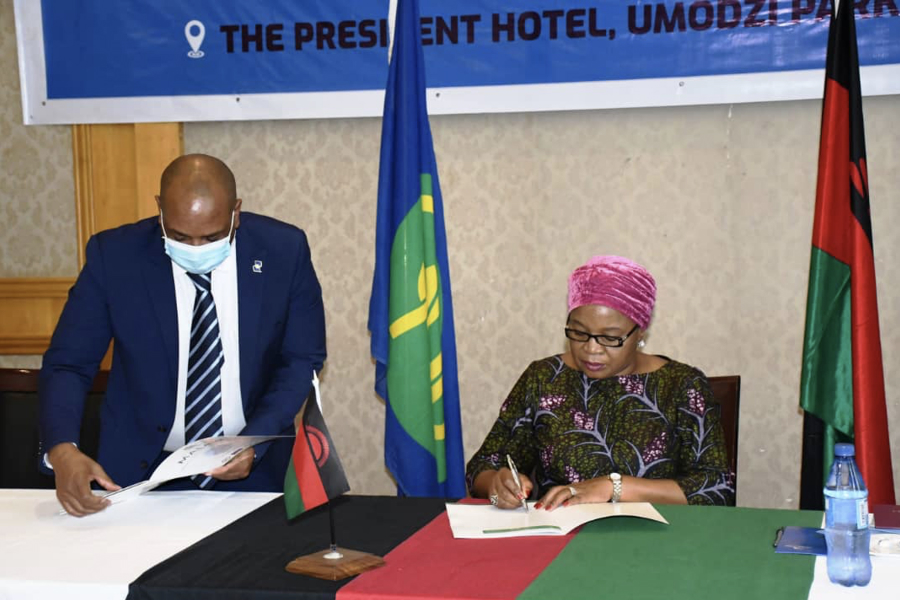
Malawi became the 9th State Party to the Charter establishing MCSCC, joining Angola, Eswatini, Lesotho, Mozambique, Namibia, South Africa, United Republic of Tanzania and Zambia. Two thirds of the SADC Member States are required to sign the Charter for it to enter into force, and thus, Hon. Tembo encouraged the SADC Secretariat to continuously engage other Member States which have not yet signed the Charter to do so, to enable the region to realize the commitment to fight IUU fishing through establishment of the MCSCC. She also committed to engage other Ministers to commit to signing of the Charter in order to strengthen cooperation and capacity to stop illegal fishing and to build sustainable blue growth in the SADC region.
In addition, the Honourable Minister launched a SADC regional report on “Working Together to Protect Our Fisheries”, to commemorate the International Day for the Fight against Illegal, Unreported and Unregulated (IUU) Fishing, observed annually on the 5th of June. The Minister also launched the new SADC-aligned National Aquaculture Strategy for Malawi. This strategy will help Malawi to domesticate and implement the SADC Regional Aquaculture Strategy and Action Plan, as part of the SADC Protocol on Fisheries. The strategy was developed through the aquaculture alignment change project under the SADC Programme on Strengthening National and Regional Linkages (SNRL), which is implemented by GIZ and funded by the German Federal Ministry for Economic Cooperation and Development (BMZ) and European Union (EU).
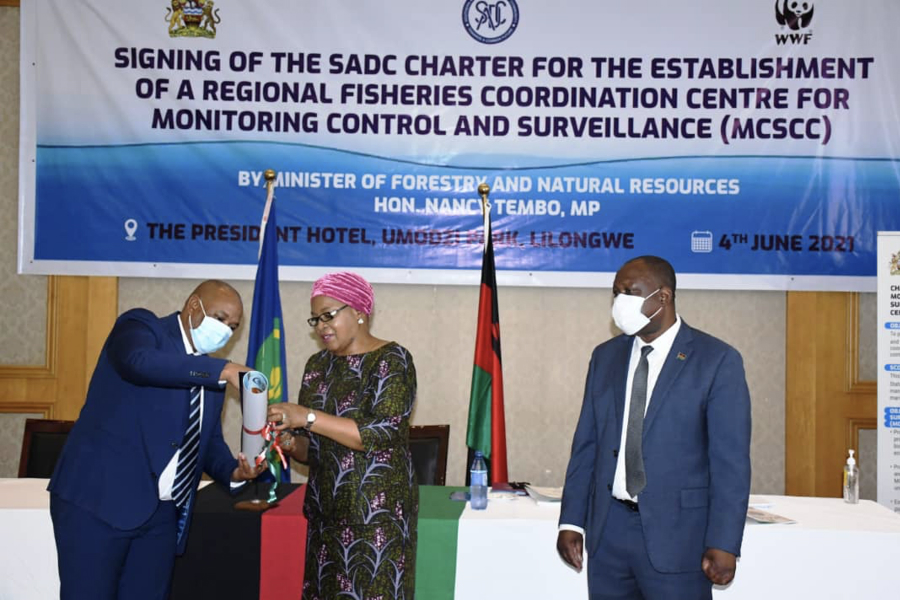
In her remarks, the Honourable Minister noted that fisheries and aquaculture provide a vital source of food, employment, recreation, trade and economic well-being for people throughout the world. She also noted that in a world of growing population and persistent hunger, fish has emerged as an important commodity for the achievement of food and nutrition security. Hence, domestication and implementation of these regional priorities and instruments is very important for the SADC region.
However, the Minister highlighted that there are challenges facing fisheries and aquaculture which needs to be addressed. These challenges include IUU fishing, fish diseases, degradation of aquatic habitats, overfishing and negative ecosystem impacts. Minister recalled that 2020 was a year of reckoning, where the region faced multiple crises, including a global COVID-19 pandemic and the continued crises of climate change and pollution. She took note of the challenges that women experience along the fish value chain. The Minister therefore asked the SADC Member States to recognise and domestic the FAO Voluntary Guidelines for Securing Sustainable Small-Scale Fisheries in the Context of Food Security and Poverty Eradication to address the challenges. She indicated that in 2021, the region must take deliberate steps to move from crisis to healing: and in so doing, the region must recognize that the restoration of nature is imperative to the survival of our planet and the human race. The Minister also asked the region to join the rest of the world in commemorating the World Environment Day (also observed on 5th June) under the theme of ‘ecosystem restoration’, and focus on resetting our relation with nature. She enthused – “By bringing degraded ecosystems back to life, let’s go and clean those river banks and lakeshores, let us restock our waters with those fish species and continue to promote fisheries reserves and sanctuaries, let us simply give nature space to recover, as this will increase benefits for our societies and to biodiversity”. She further emphasised that without reviving ecosystems, it would be challenging to achieve the Sustainable Development Goals or the Paris Climate Agreement. She congratulated the SADC Secretariat for promoting the profile of fisheries and aquaculture and their importance in the global food systems.
